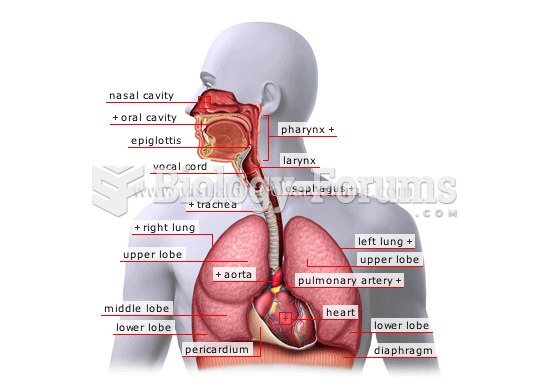|
|
|
Eating carrots will improve your eyesight. Carrots are high in vitamin A (retinol), which is essential for good vision. It can also be found in milk, cheese, egg yolks, and liver.
More than one-third of adult Americans are obese. Diseases that kill the largest number of people annually, such as heart disease, cancer, diabetes, stroke, and hypertension, can be attributed to diet.
During the twentieth century, a variant of the metric system was used in Russia and France in which the base unit of mass was the tonne. Instead of kilograms, this system used millitonnes (mt).
Green tea is able to stop the scent of garlic or onion from causing bad breath.
The senior population grows every year. Seniors older than 65 years of age now comprise more than 13% of the total population. However, women outlive men. In the 85-and-over age group, there are only 45 men to every 100 women.
 (A) Each bronchiole terminates in an alveolar sac, a group of alveoli; (B) alveoli encased by networ
(A) Each bronchiole terminates in an alveolar sac, a group of alveoli; (B) alveoli encased by networ
 skeletal muscle consists of a group of fibers held together by connective tissue. It is enclosed in ...
skeletal muscle consists of a group of fibers held together by connective tissue. It is enclosed in ...





